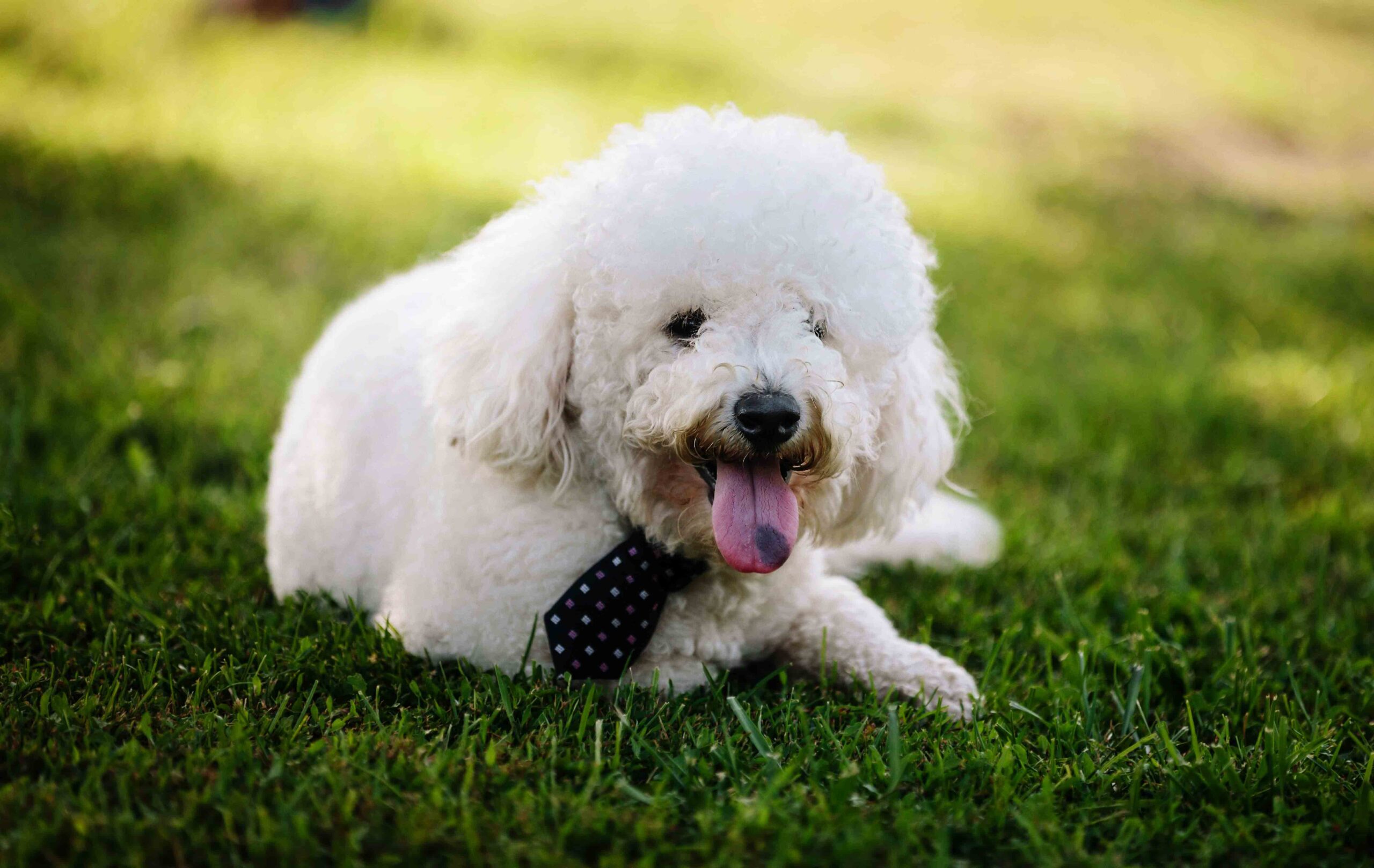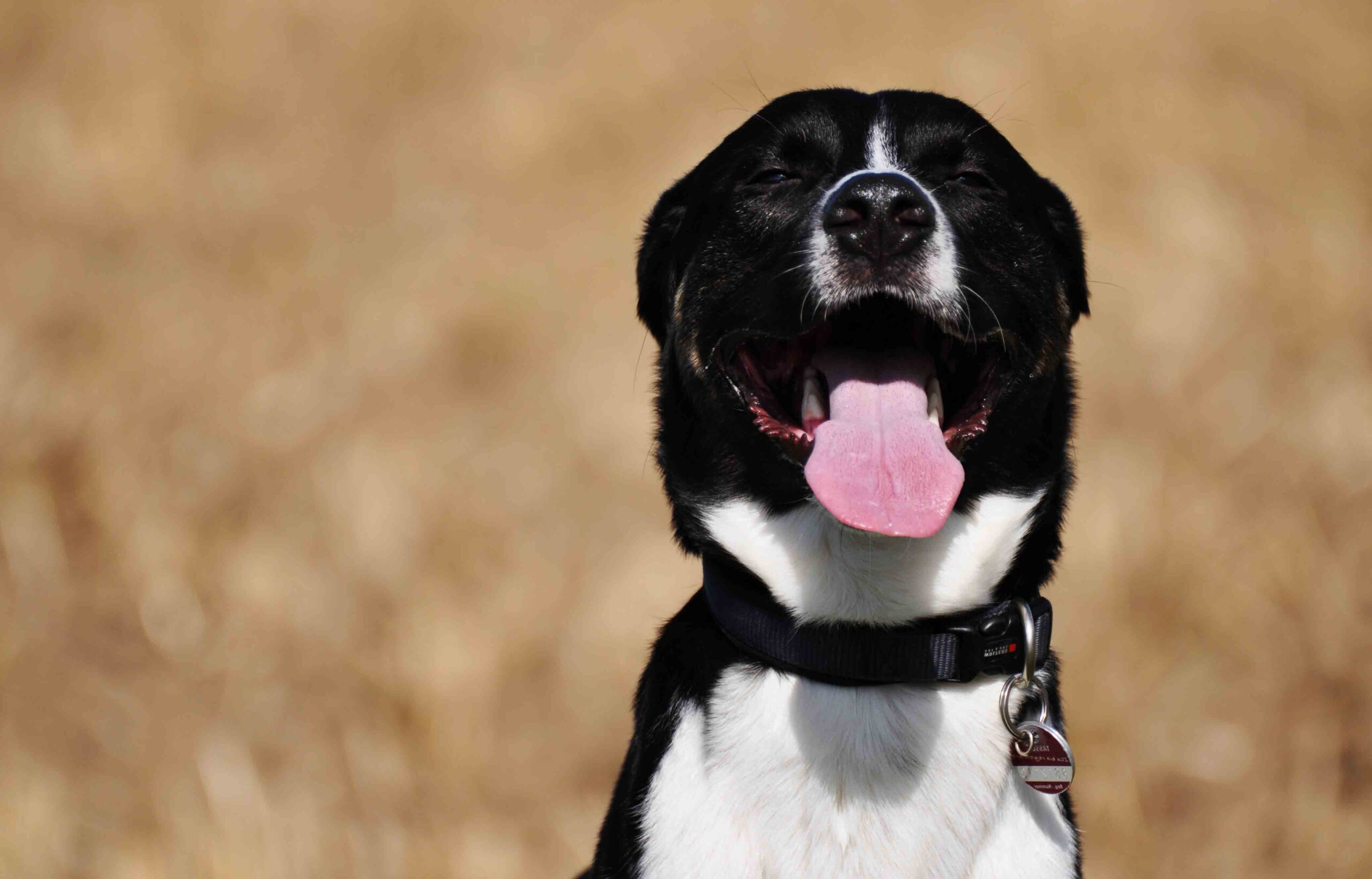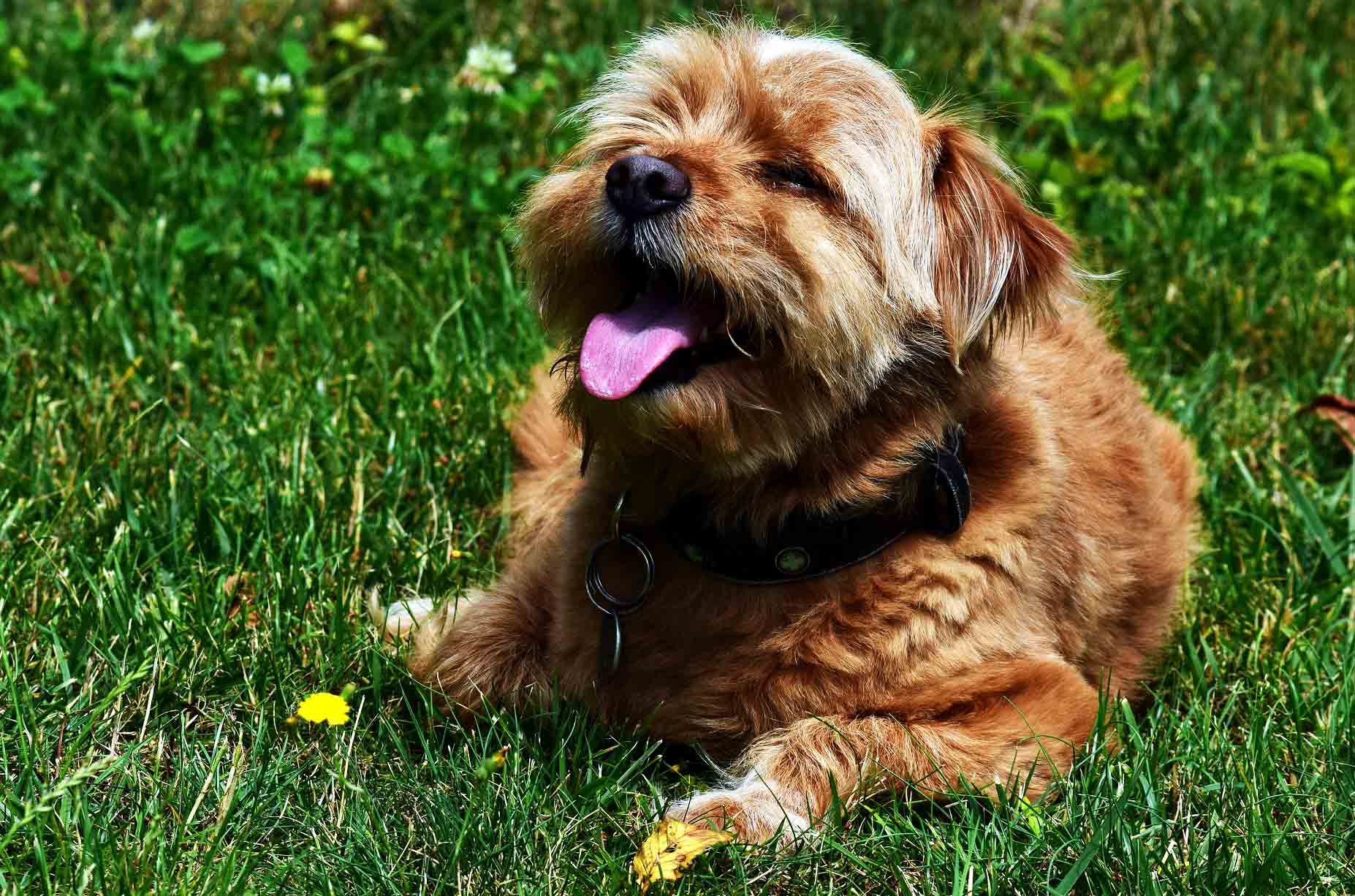
why is my dog breathing heavy
You’re probably asking yourself the following question, why is my dog breathing heavy? Dogs often seem to breathe heavily, especially when they’re excited or anxious about something, but more severe health issues can also cause it.
The good news is that there are many common reasons why your dog might be breathing heavy, so you don’t need to worry too much until you’ve ruled out these causes first! In this article, we’ll be going over 10 of the most common reasons why your dog might be breathing heavy.
Dog Breathing Heavy due to being nervous
While it’s not something that happens often, your dog may breathe heavily due to being nervous or scared. Try to get them into a relaxed state by petting them and speaking softly. If they are still uncomfortable, try taking them out of the situation for a few minutes so they can calm down.
Once they have calmed down, you should see changes in their breathing rate and other symptoms like shaking and shivering due to fear. But if none of these things work, make sure to contact your vet immediately! Your puppy could have some respiratory disease or, even worse, heart problems. Keep an eye on things for now and check back with us again!
Dog Breathing Heavy due to allergies
Certain kinds of allergies (e.g., food, fleas, dust mites) can trigger a response in dogs that makes them breathe heavier and seem more agitated than usual. It’s important to recognize these symptoms as if left untreated; an allergy could lead to a host of more severe health problems.
Although dogs can have several different types of allergies, most can be treated with some combination of diet modification and environmental changes (e.g., treating for fleas); however, if your pet continues to struggle with their allergies after you’ve taken steps to eliminate triggers from their life, consider speaking with a veterinarian about immunotherapy treatments.
Dog Breathing Heavy due to exercise
One of the most prominent causes of a dog’s heavy breathing is intense exercise. After all, dogs don’t wear pedometers to measure their steps. As a result, it can be tough to tell how much energy they’re spending on any given day. It isn’t uncommon for people who run or walk with their dogs to notice an uptick in panting as they reach a certain distance or time goal (e.g., three miles or 45 minutes).
When that happens, it makes sense to slow down and rest. After all, you wouldn’t push yourself more challenging if you were running with another person!

Dog Breathing Heavy after eating
Eating causes dogs to breathe heavier for a few minutes. However, if it lasts longer than that and starts occurring outside of mealtime, it could be a sign of something serious. Eating can cause dogs to breathe heavily after eating because it makes them complete and slows down their metabolism.
Their body isn’t able to do as much work or process as many calories as quickly after eating, so they’ll breathe heavier as a result until their metabolism adjusts. It’s nothing to worry about if it doesn’t happen more than an hour after feeding; keep an eye on him over his next few meals to make sure he’s not coughing or wheezing in between eating and walking around normally again.
Dog Breathing Heavy during sleep
Dogs often sleep heavily or don’t move much during sleep at all. This is perfectly normal, especially in puppies and senior dogs. But if you find that your dog is consistently breathing heavier than usual while sleeping or makes labored or wheezing noises when sleeping, it could be an indication of a severe problem. If you notice that these symptoms are new to his routine (such as over a week), it’s probably worth taking him to see a vet to get checked out.
Some of these problems can be treated relatively quickly and inexpensively; other problems could spell death for our four-legged friends.
Dog Breathing Heavy because of head trauma
A head injury can lead to swelling in or around a dog’s brain, putting pressure on his brain. However, if it is not too severe, his breathing will typically return to normal after 12 hours or so of rest. In more severe head trauma cases, he may need 24 to 72 hours of rest for his brain swelling to go down and make room for him to breathe better.
Dogs who continue to have trouble breathing after head trauma should be taken in for veterinary care right away. Dog Breathing Heavy because of anxiety: Anxiety can cause dogs’ hearts and lungs to work harder than they should have when they’re in stressful situations—which may include being introduced into a new home or meeting other pets while on walks.
Dog Breathing Heavy from kennel cough
kennel cough, also known as canine infectious tracheobronchitis, is a highly contagious upper respiratory disease that affects dogs. Infected dogs typically display symptoms such as runny nose, fever, dry and hacking coughs, loss of appetite, and lethargy. In severe cases, dogs may die from complications like pneumonia.
Many dogs are carriers of kennel cough; they get infected with it but don’t show symptoms or have mild symptoms which clear up on their own. However, they can still spread it to other dogs when in close contact. Dogs get infected from contact with an infected dog’s saliva or nasal discharge through being licked or sniffing each other’s faces and paws.
Dog Breathing Heavy from an allergy medication reaction
It’s not uncommon for pet owners to see their dogs have an adverse reaction to their medicines, and one of those reactions may very well include rapid or difficult breathing. Dogs are susceptible to chemicals and other things that we tend to think of as safe, so it only makes sense that we should try our best to recognize when they have a severe allergic reaction or have come into contact with something toxic.
It’s certainly easier said than done, but take a look at these ten ways you can identify if your dog is suffering from an adverse reaction to something that wasn’t right for them. If you suspect any one of these may be going on, seek veterinary attention immediately!
Dog Breathing Heavy from heatstroke or sunburn
Like humans, dogs can experience heat stroke or sunburn, which are extremely dangerous. If you’re walking Fido in the hot sun and notice he’s panting harder than usual, try to find some shade immediately and give him a good rubdown with a wet towel (cool water is best for sunburn).
If he shows any signs of discomfort or isn’t recovering well after cooling down for about 10 minutes, take him to see his vet as soon as possible. Drenching him in cool water on an ongoing basis isn’t recommended because it can cause hypothermia.
Help! My Dog is Breathing Heavy!
Your dog’s breathing heavy, and you don’t know what to do! Is this bad? Should you be worried? Before you panic, take a moment to think about why your dog may be breathing like this and what you can do to make them more comfortable.
There are many reasons why dogs breathe heavily, and many of them are normal and nothing to worry about. Still, it’s essential to check with your vet just in case! This guide will help you understand the five most common reasons why dogs breathe heavily so that you can provide them with any extra comfort they need.

Hint Is your dog panting?
Panting occurs when dogs overheat, so if your dog’s panting, it’s because he’s too hot and needs to cool down. Ensure you know how to take care of your pup when it’s hot outside, and consult with a vet if symptoms continue or worsen.
Is she breathing shallowly? Are her gums pale?: If your dog seems to be laboring for breath or has pale gums, it may be a sign of respiratory distress. Consult with a vet as soon as possible—once in respiratory distress, dogs can deteriorate quickly.
Hint 2
There are a few possible causes of heavy breathing in dogs. The first would be an anxiety attack, also known as separation anxiety. If your dog has a very close relationship with you, then it’s not unusual for them to experience an attack of panic when you leave them alone.
Dogs that have been abandoned or abused in their past can suffer from separation anxiety when they are left on their own; if that sounds like your pet, don’t feel guilty about leaving him behind while you’re at work or running errands—most likely, he’ll be much happier.
Hint 3
What can make a dog breathe heavily? Sometimes, when dogs breathe in and out quickly for no apparent reason, it’s called sighing. This isn’t serious, but if your dog has never done it before, or if you notice other symptoms along with it, such as coughing or wheezing, he may have a more severe problem.
Have him checked by your vet immediately. However, if all that seems okay, sighing could be due to anxiety. You may not see any physical signs of anxiety (more on that below), but dogs are still susceptible to stressors in their environment.
What can you do if it’s a heart condition?
Dogs with heart conditions can and do the live whole, happy lives. Some breeds of dogs that commonly have heart conditions—like cavalier King Charles spaniels and miniature schnauzers—have an average lifespan of 10 to 14 years. Still, it’s essential to know your pet’s disease or condition and how you can care for them. To learn more about caring for a dog with a heart condition, check out our infographic on canine congestive heart failure.
You can also contact a veterinarian to answer specific questions or concerns about your pup’s health. Here are five things your vet might be able to help you with 1. What kind of diet should my dog have? 2. How much exercise does my dog need?
Try these tips in this order, starting with the most important.
1. Take your dog to your vet. This may seem obvious, but it’s essential to know what’s going on with your dog before you go trying to solve things yourself. If something in her diet or environment triggers an allergic reaction or asthma attack, treating these problems can be tricky without expert guidance and medication.
Your vet will likely ask you questions about any significant life changes your pet has experienced recently (e.g., a new pet in the household), as well as information about her daily routine and health history.

Be prepared – have all the numbers written down on a sheet of paper.
By now, you’ve probably done all you can do, but your vet has one final recommendation: Call me if his breathing gets any worse or if he doesn’t seem like himself at all. Your dog isn’t improving, and his breathing is still labored. As you pick up the phone to call, it starts to ring. It’s your vet.
He’s an animal ER doctor and says that it sounds like your dog may have been exposed to some pesticide or industrial solvent in an area where dogs are not allowed. He tells you to bring him in immediately to treat respiratory distress syndrome. Treatment involves hooking him up to a ventilator and running oxygen through a tube down his throat into his lungs.
Follow up after your vet visit.
If your dog has been diagnosed with asthma or chronic bronchitis, your vet will prescribe a treatment to help manage symptoms. For dogs with stable conditions, you’ll be given instructions for administering medication and dealing with flare-ups.
These plans may vary depending on whether your dog is short- or long-term, so don’t hesitate to call your vet if you have questions about how to treat his breathing problems at home. It’s also important to remember that these treatments won’t cure asthma, but they can help control it and make it less severe in some cases.
So stick to a schedule when administering medications, and contact your vet if you see no improvement in your condition after several weeks of treatment.
Did this help you and your pup? Please tell us about it below!
There are several reasons your pup might be breathing heavily. First, it could just be a sign of arousal and excitement in some dogs, so if your pup responds to barking, thunderstorms, or other loud noises by getting all riled up and panting like crazy, that’s likely all it is.
When your dog breathes fast when playing with you or other pets, it could also mean they’re excited. But if they seem out of breath but aren’t running around or playing with you, something else may be going on. Here are a few possibilities

